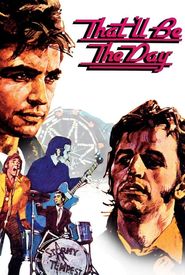Ronald William Wycherley, better known by his stage name Billy Fury, was a renowned English pop singer who achieved widespread success from the late 1950s to the early 1960s. Despite his untimely passing in 1983, Fury continued to be an active songwriter until the 1980s.
As a child, Fury contracted rheumatic fever, which had a lasting impact on his health. The disease damaged his heart, ultimately contributing to his death. Prior to his passing, Fury had established himself as a prominent figure in the British rock and roll scene, rivaling The Beatles' impressive record of 24 hits in the 1960s.
Throughout his career, Fury spent an impressive 332 weeks on the UK charts, without ever achieving a chart-topping single or album. His unique blend of rugged good looks, unassuming masculinity, and vulnerability, combined with his remarkable vocal talent and musical abilities, helped him become a major rock and roll star.
Fury's stage act was also notable for its Elvis Presley-inspired moves, which often featured hip-swivelling and suggestive gestures. This charismatic performance style, coupled with his undeniable musical talent, earned him a devoted fan base and cemented his status as a rock and roll icon.




























